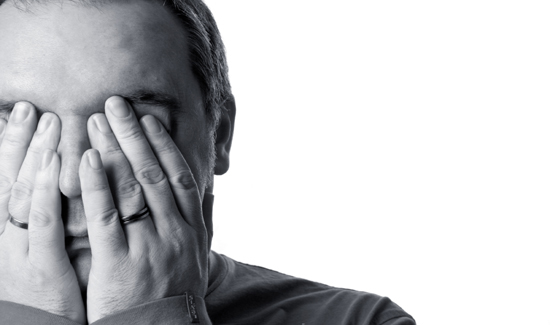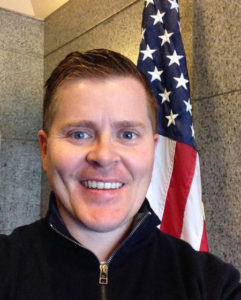Officer Suicides: Agencies Must Do More

Every law enforcement agency has a responsibility to care for the physical, mental and financial health of their officers, but few take this responsibility seriously. In this article, Brian Mc Vey, a former Chicago cop, takes on the issue of police suicides and his former department’s failure to take proper care of their officers who are suffering. In the end, Mc Vey says, the only solution is that cops have to take care of each other.
What Happens When Agencies Don’t Take Care of Their Officers?
by Brian Mc Vey
I recently listened to an interview with author Sebastian Junger. He said the Amish are against many of the new technological trinkets we’ve grown accustomed to using and tied it to the fact that Amish people have a very low rate of suicide and depression and a very strong sense of community.
I got to thinking about the Chicago Police community. The Department of Justice report said the Chicago Police Department had systemic failures to train and discipline officers and faulted department leaders for failing to invest in mental health care for its officers. You read that correct. The city leaders failed to invest in the mental well being of officers. Chicago’s media ran with stories about the systemic failures and how officers mistreat people, yet they failed to mention that the city is not giving its officers the help they need and deserve.

“The DOJ report was clear: the Chicago PD is not investing in its officers.” — Brian Mc Vey
The Department of Justice revealed that the Employee Assistance Program (EAP) in Chicago is intended to provide counseling services to both Department members and their families was terribly understaffed and their counselors are overextended. To this indictment City Hall responds with silence.
The dirty secret is out and little is being done about it. It is not breaking news that the City of Chicago’s Employee Assistance Program, (EAP), has been understaffed and underfunded for decades. The men and woman who proudly wear the Chicago Police uniform deserve better, having to deal with evil daily. A few years ago I could have said the evil Daley.
I believe there is a connection to the high rate of Chicago Police suicides and the lack of clinicians serving the twelve thousand officers and their families. If you are an officer strong enough to make a call to (EAP), understand you may not get an appointment for over a week. I am NOT belittling the EAP staff; their schedules are full. Consider the numbers again; there are twelve thousand officers, add their spouse and families and only 3, THREE (3) clinicians on staff. This is pathetic. In Los Angeles, thirteen 13 counselors serve 10,000 officers and I question if that is enough.
The law enforcement culture has long had stigma attached to seeking help with mental and psychological issues. Though many departments have been actively working to destroy the stigma associated with seeking help, Chicago has not. This cultural norm, tacitly supported by leadership, is destroying officers’ families too. Those loving their families enough to seek help rarely tell peers of the help they receive. Location is another obstacle contributing to reluctance to ask for help. The sole facility is located on Chicago’s west side and houses the EAP only; not at all friendly for officers wanting to be discreet.
I know a about the stigma from experience. I was terribly nervous and fearful about getting help from EAP for mental and physical injuries sustained in an on duty squad car accident that continues to plague me. EAP helped me heal and likely saved my marriage. The hardest part for me was showing up. Having parked my car outside the office, I would walk with my head down and the brim of my hat low so as no one would notice me. Its amazes me how hard people work to mask their hurt. The stigma needs to end.
According to Chicago’s Crain’s Business Magazine, in the last fifteen years, City Hall has spent over six hundred million dollars in lawsuits. You read that correct, $600,000,000; that’s over a half billion dollars and I wonder if some of the incidents may have been avoided if officers had better access to EAP services.
Unusual and severe daily stress is part of police work and officers must be taught and encouraged to find healthy coping mechanisms away from the job to clear their minds and rejuvenate themselves. Balanced diet, and sleep patterns are critical to staying healthy, not heavy drinking and abuse of prescription drugs.
If a large corporation sustained three suicides yearly for the last decade, there would be dramatic change. Recently, I spoke with a retired officer who said, “ The city doesn’t want change. They know what’s going on and continue to do Nutt’n.” The city could afford a Southside office and a North side Office for Officers.” He’s right! Leadership simply does not care, even though having a properly funded and staffed EAP would keep more officers healthy and diminish lawsuits.
I believe EAP is doing a great job, but they don’t have the resources to serve sworn officers as well as the retired officers and their families. I hope the City will better invest in the mental wellbeing of Chicago Police Officers. Until then, I suggest every officer make a phone call, send a text, on your lunch break, make a lunch date or meet that officer who you know to be hurting. We can’t wait for leadership to make the necessary investment in our health and wellness. Their talk of caring is empty. Let’s start by helping each other; doing so we help ourselves.
Brian Mc Vey is a former Railroader, Chicago Police Officer, Adjunct Professor and Writer. Connect with him via email at btmcvey77@gmail.com.














